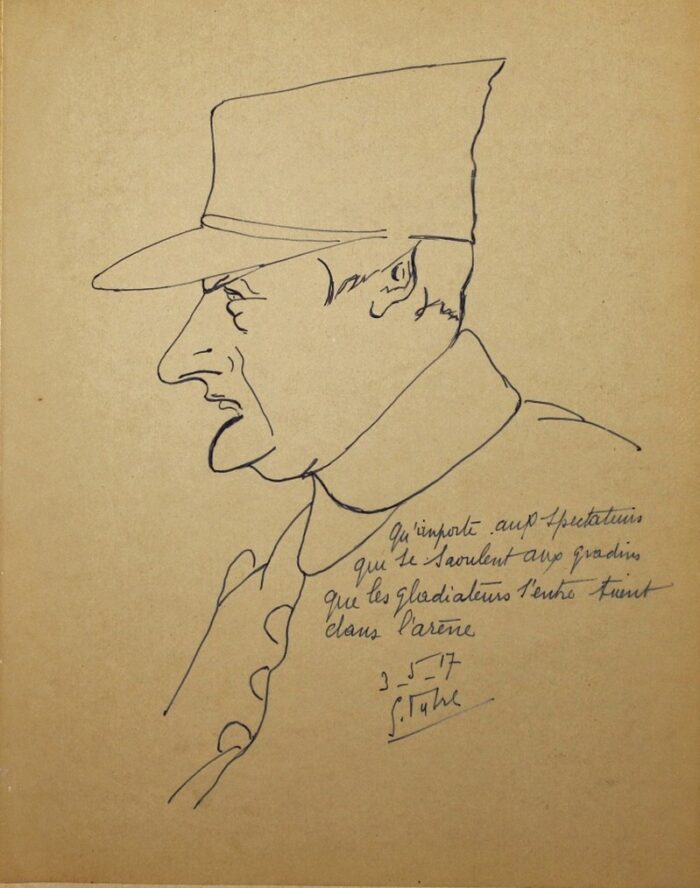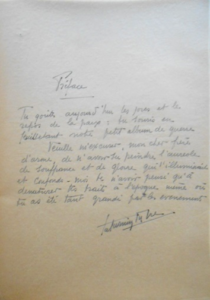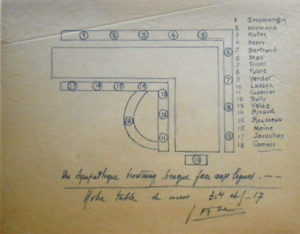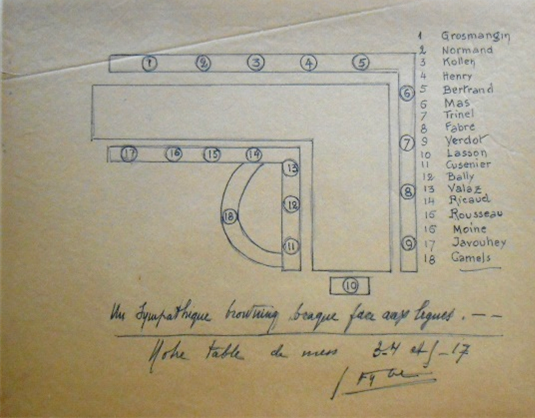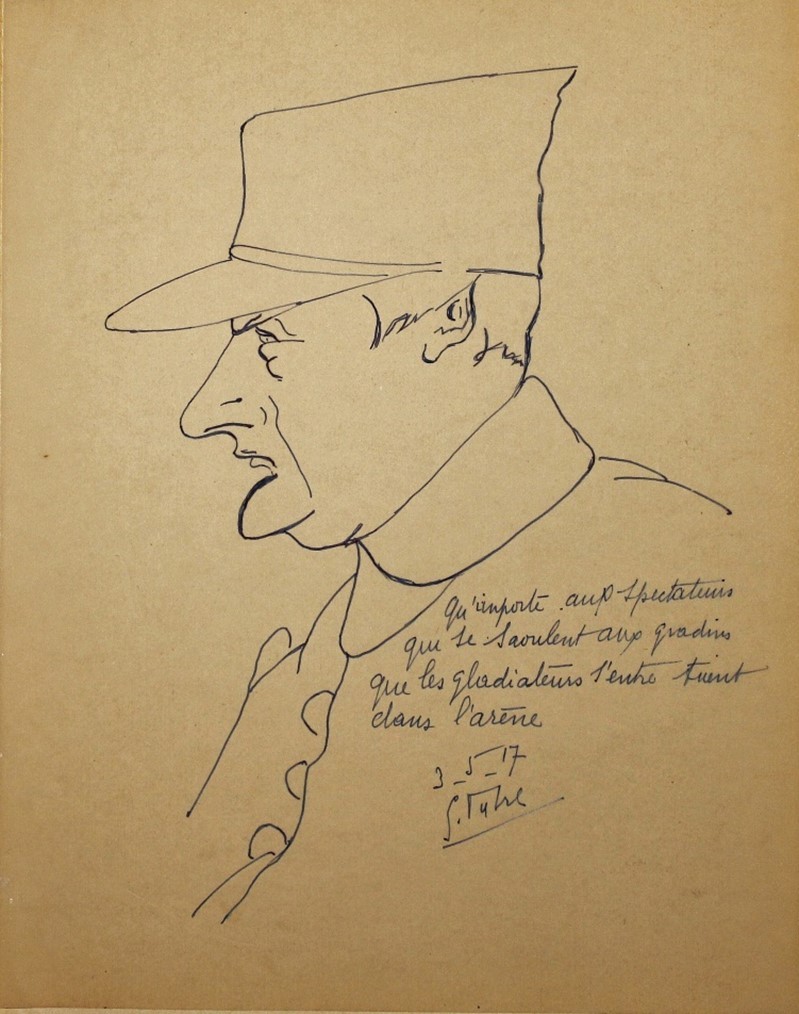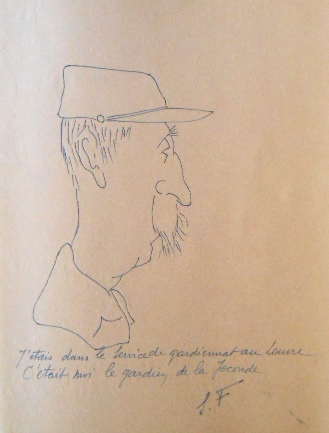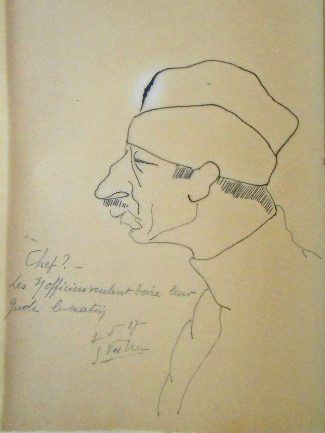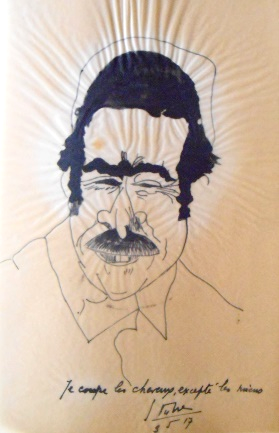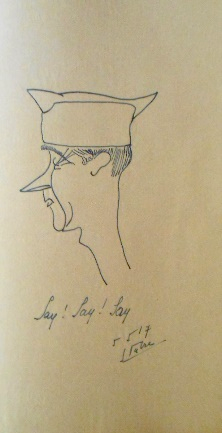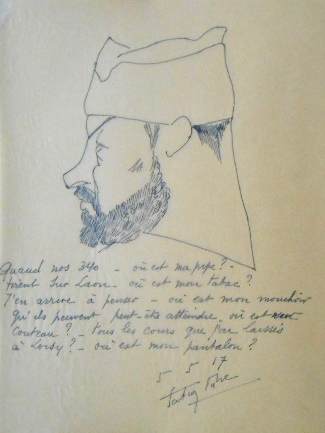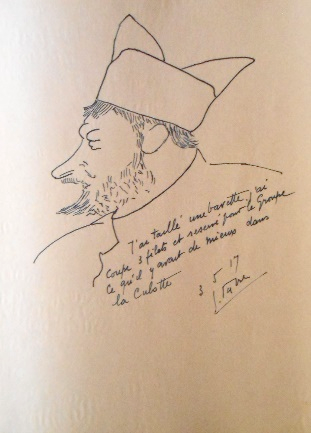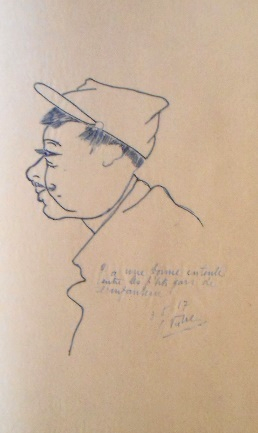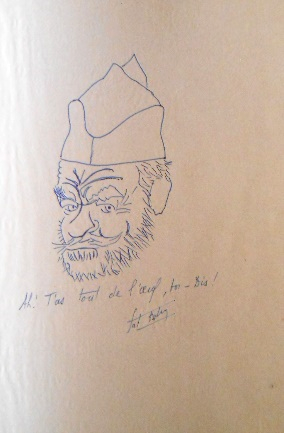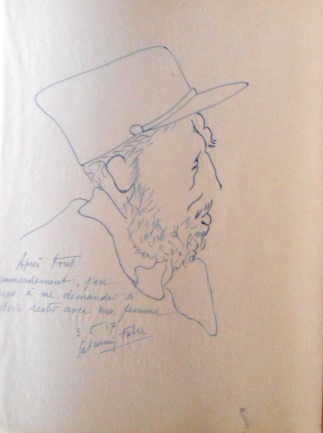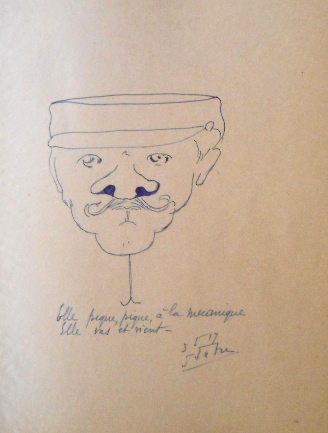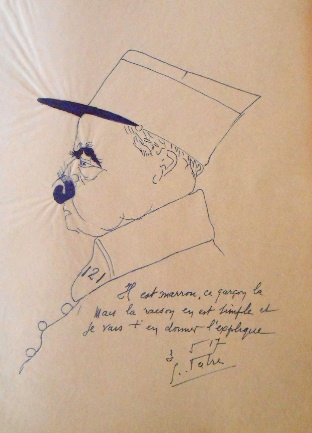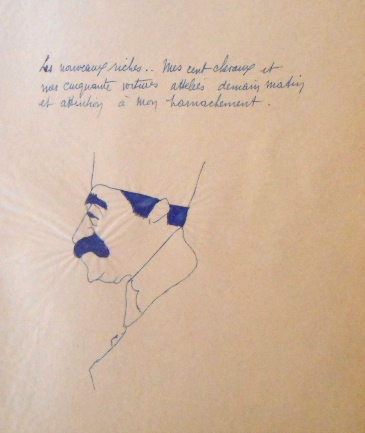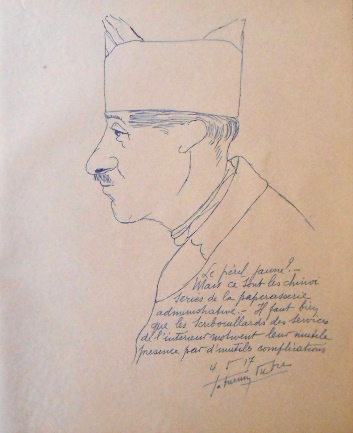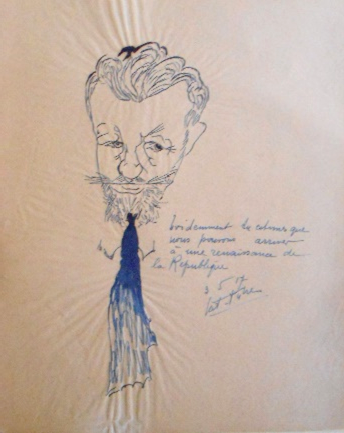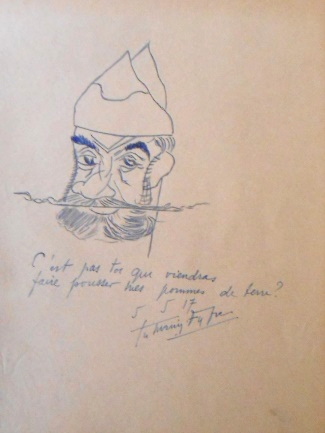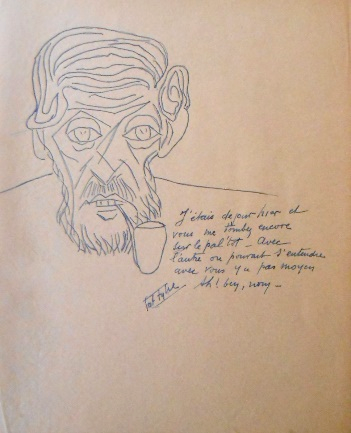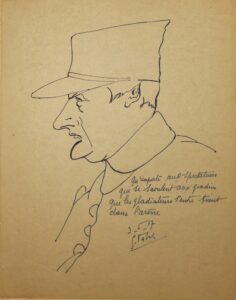Saturnin Fabre. [Album de dessins, souvenirs de guerre 14-18]. No place [Savy, in Aisne], May 3rd to 5th 1917. 20 tracing paper loose sheets (28 x 22,5 cm) inserted in a notebook with blank cardboard pages (32 x 24 cm). A handwritten preface, Notre table de mess representing un sympathique browning braqué face aux lignes, and 18 portrait charges drawn in midnight blue then black ink (some have kept their grey pencil sketches) with a short commentary; all pages signed and dated by the author (with the exception of the preface, which is only signed and slightly later). Paperback, cardboard cover in blue sky.

Saturnin Fabre (Sens, 1884 – Montgeron, 1961), actor, one of the most singular supporting characters in French cinema before and after the war, no doubt intended to publish this little album; he notes in his moving preface : « Tu goûtes aujourd’hui les joies et le repos de la paix : tu souris en feuilletant notre petit album de guerre ; Veuille m’excuser, mon cher frère d’arme, de n’avoir su peindre l’auréole de souffrance et de gloire qui t’illuminait et confonds-moi de n’avoir pensé qu’à dénaturer tes traits à l’époque même où tu as été tant grandi par les évènements. » [Today you are enjoying the joys and rest of peace: you smile as you leaf through our little war album. Please forgive me, my dear brother-in-arms, for not having been able to paint the halo of suffering and glory that illuminated you, and forgive me for thinking only of distorting your features at the very time when you were so grown up by events.]
All these military men are from the 121st R.I., comrades in arms and meals of Fabre who represented the table of the mess with the marked location of each of the models: Grosmangin, Normand, Kollen, Henry, Bertrand, Mas, Trinel, Fabre, Verdot, Lasson, Cusenier, Bally, Valaz, Ricaud, Rousseau, Moine, Javouhey, Camels.
Note that the 8th portrait, a masterly one, is a self-portrait with the commentary : « Qu’importe aux spectateurs qui se saoulent aux gradins que les gladiateurs s’entre tuent dans l’arène. 3-5-17 », which reveals the author’s feelings at a time when serious mutinies were breaking out in the French army following the failure of the Chemin des Dames offensive; this comment is echoed in his autobiographical work the Douche écossaise published by Fournier Valdes in 1948: « Les gladiateurs s’entr’égorgent dans l’arène. Les spectateurs rient. Pourquoi les gladiateurs n’égorgeraient-ils pas les spectateurs ?… » (p. 170) [Gladiators slit each other’s throats in the arena. The spectators laugh. Why don’t the gladiators slit the spectators’ throats?…]
In May-June 1917, the 121st Infantry Regiment was at Savy in the Aisne; it took part in the Battle of Verdun in August 1917 and was then engaged in the Argonne. The finesse of the line, of a rare quality, is supported by truculent texts (« Il est marron ce garçon-là, mais la raison en est simple et je vais t’en donner l’explique » [This boy is brown, but the reason is simple and I’ll give you it explained]), humorous (« Après tant d’emmerdement, j’en arrive à me demander si je dois rester avec ma femme » [After so much hassling, I get to wonder if I should stay with my wife] or « Et lorsqu’on lui demande un mandat, il répond je n’ai même pas le mandat d’amener l’amant d’Amanda » [And when asked for a warrant, he answers I don’t even have the mandate to bring Amanda’s lover, pun on “mandat”), and even political ( « Evidemment tu estimes que nous pouvons arriver à une renaissance de la République » [Of course you think we can achieve a renaissance of the Republic]).
Saturnin Fabre was not very forthcoming about his war memories: ‘We were brutes. Brutes don’t have memories…’ he wrote in the Douche écossaise; indeed, our album is a testimony of all the more precious.
A few tiny and rare stains, cover soiled. A rare and moving document in excellent condition.
1 300 €
